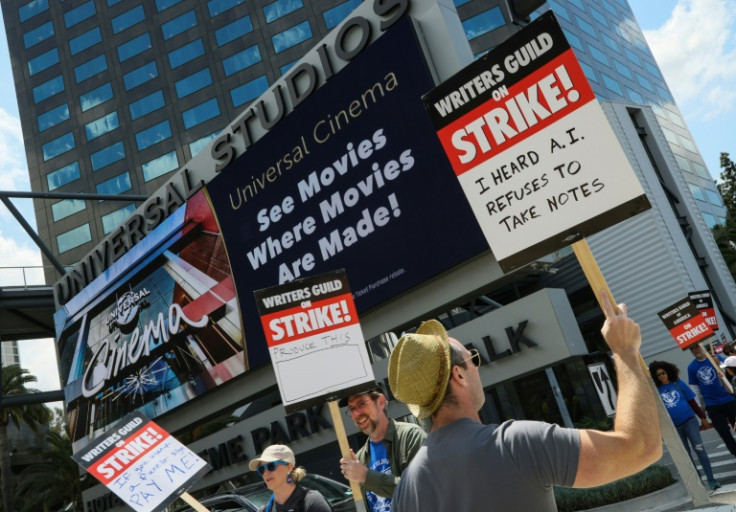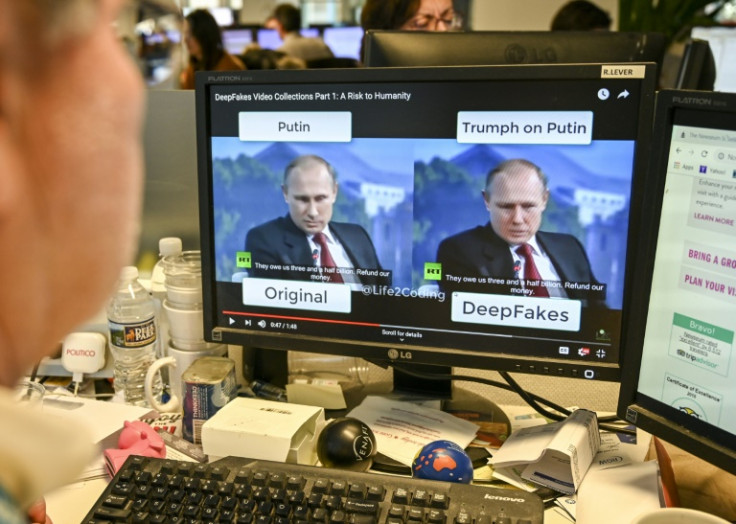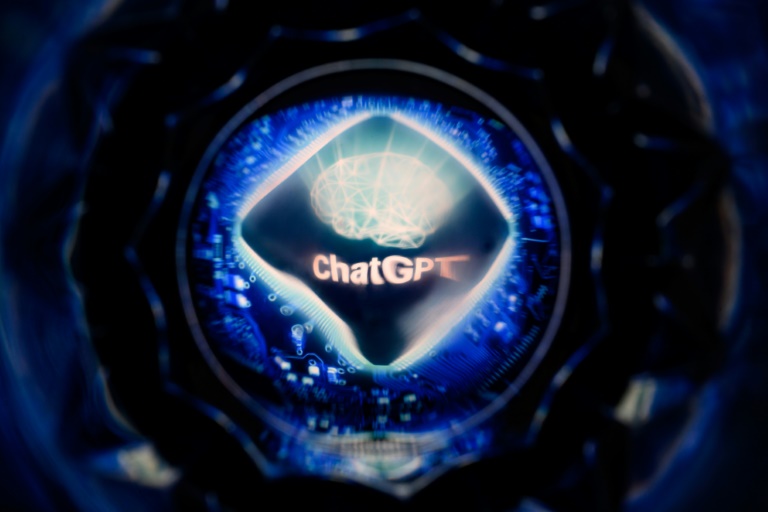AFP
At an AI talk on a Cannes beach, a presenter’s voice is cloned and used to say a random phrase in three languages, while another’s face is replaced live on screen as they speak.
Few of the film buffs attending the premiere industry festival are shocked.
Ever since the artificial intelligence chatbot ChatGPT took the world by storm six months ago, spurring an AI race among tech giants, the technology has shaken up the film industry.
The use of AI to write scripts is one of the leading concerns among Hollywood movie and TV writers who are in their third week of a strike that has upended productions.
However the technology is revolutionising everything from voice acting, to analysing scripts and coming up with a budget, to creating mock-ups of scenes before you even pick up a camera.
“New things are created every single day,” says Quinn Halleck, a 25-year-old filmmaker who is about to release a three-part short movie called “./ Sigma_001” which is about a sentient AI being, and uses AI from conception to marketing and distribution.
“It’s not just one tool, it’s sort of sprinkled throughout the workflow process,” he tells AFP on the sidelines of a panel on AI.
This ranges from asking ChatGPT what a character could be like, what her backstory is, and “riffing” off that to create ideas.
Telling an anecdote about a showrunner who hires writers by giving them the same prompt as he gives ChatGPT and seeing if they perform better, he argues the “bar has been raised” to come up with great ideas.
But while some assistant roles may disappear, he believes a human director remains essential.
“You still have to come up with the ideas, you have to create the prompts and curate the answers.”
The world’s leading film festival, taking place on the French Riviera, got a hefty dose of AI with a lengthy scene de-aging Harrison Ford, 80, in “Indiana Jones and the Dial of Destiny”.
While producers have ruled out using AI to keep the role going, actors like Tom Hanks believe it will allow him to keep acting long after his death.
Hanks is currently being de-aged in his upcoming movie “Here”, with help from deepfake, face-swapping technology from AI firm Metaphysic.
The company’s co-founder Tom Graham says technology has bridged the so-called “uncanny valley” — the visceral human rejection of less-than-realistic androids — and is now creating deepfakes where you “absolutely can’t tell the difference”.
The company is behind Deepfake Tom Cruise, a TikTok account that perfectly imitates the actor, and also created a hyper-real Elvis Presley who morphed into Simon Cowell and his co-judges on an episode of “America’s Got Talent”.
While filmmakers are brimming with excitement over the technology’s potential, questions of its abuse hang over the session.
“This set of technologies represents, you know, a set of tectonic social shifts like the industrial revolution, which will play out over the next 20-50 years and people should be worried about what happens,” Graham tells AFP.
“Unfortunately, I don’t believe that you can stop the advancement of the technology because a lot of it is open source. There’s not really anything to turn off.”
His advice: “You should try to own and control the rights to your biometric data, how you sound, how you look, and really kind of lock that down.”
Magdalena Zielinska of ElevenLabs in Poland which claims to have created the “most expressive” AI voices available, says tools to check if a voice is synthetic will be essential.
Unlike the robotic AI voices of the past, models have learned to replicate the pace and intonation of human voices.
She says the tool allows directors to see how a scene will sound, or advertisers to see what kind of voice resonates most with clients. It can also be used to fix problems in post-production.
Zielinska says the technology could allow an actor to license their voice and do more projects at the same time.
A voice actor who fled the war in Ukraine was struggling to find work in Poland, and is “now making money”, she says, after using the technology to clean up his English accent.
French director Mathias Chelebourg foresees that 90 percent of overall production will eventually be done by AI on movie sets.
“Hire right now an AI specialist in your team, whatever your job is, and hire it now, because in one year you will regret it,” he warns.

AFP

AFP






